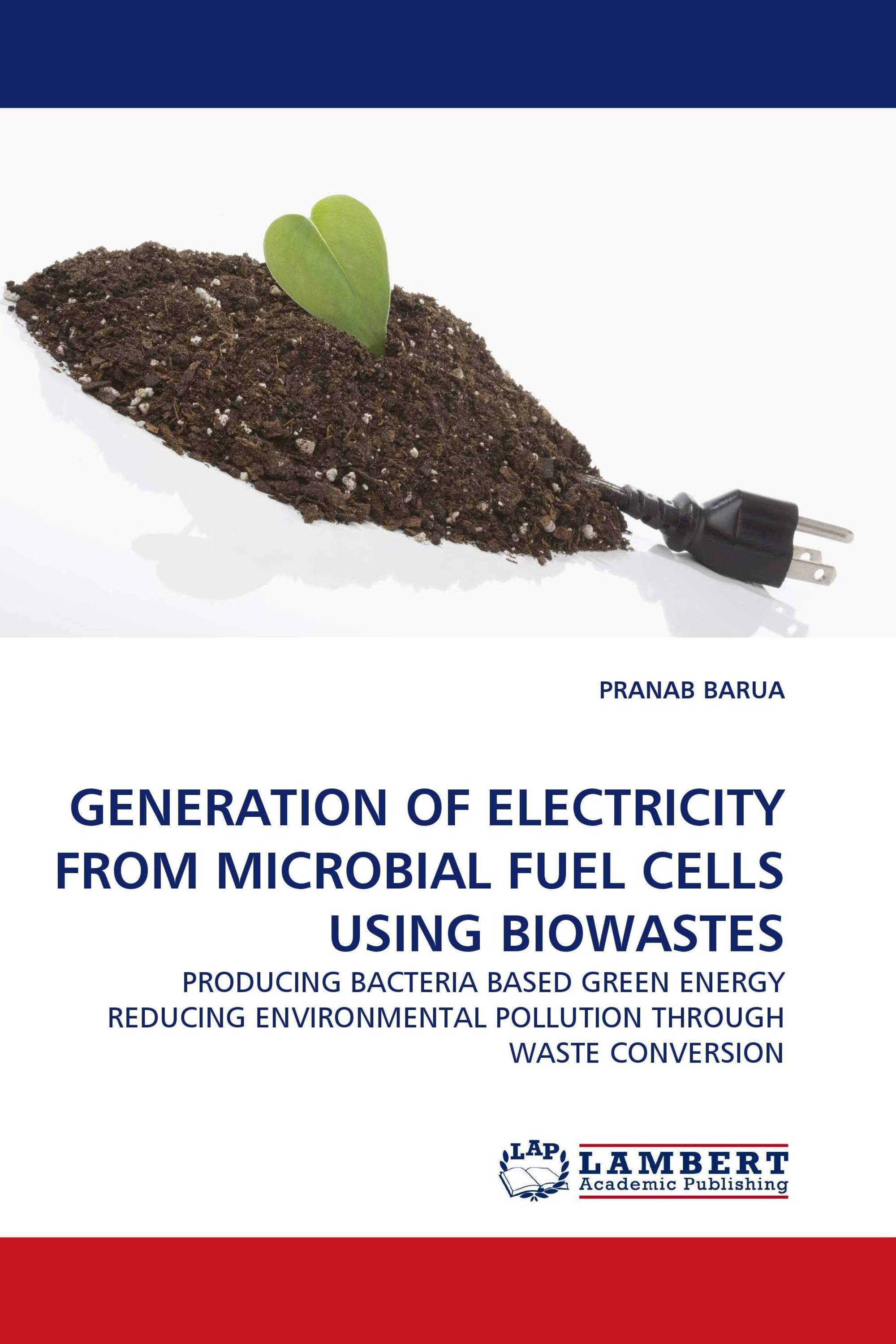GENERATION OF ELECTRICITY FROM MICROBIAL FUEL CELLS USING BIOWASTES
PRODUCING BACTERIA BASED GREEN ENERGY REDUCING ENVIRONMENTAL POLLUTION THROUGH WASTE CONVERSION
LAP Lambert Academic Publishing ( 2010-09-20 )
€ 49,00
There is an increasing interest in alternative energy sources as the fossil fuel reserves like petroleum, charcoal and natural gas are limited and utilization of these fuels creates environmental pollution. The microbial fuel cell (MFC) is a new form of renewable energy technology that can generate electricity from what would otherwise be considered waste. In an MFC, bacteria are separated from a terminal electron acceptor at the cathode so that the only means for respiration is to transfer electrons to the anode thus converting chemical energy to electrical energy by the catalytic reaction of microorganisms. There has been a growing interest worldwide on MFC as it utilizes biowaste for power generation and reduces environmental pollution. In the present investigation, an attempt was made to generate electricity from MFC by utilizing different biowastes such as fresh cow dung, kitchen drain water and wastewater. A mathematical model based on the data collected has been developed to express voltage generated with respect to time. It has been found that for any biowaste whatsoever, voltage generated in an MFC is a linear function of time with a negative slope.
Book Details: |
|
|
ISBN-13: |
978-3-8433-5266-6 |
|
ISBN-10: |
3843352666 |
|
EAN: |
9783843352666 |
|
Book language: |
English |
|
By (author) : |
PRANAB BARUA |
|
Number of pages: |
68 |
|
Published on: |
2010-09-20 |
|
Category: |
Building and environmental technology |




